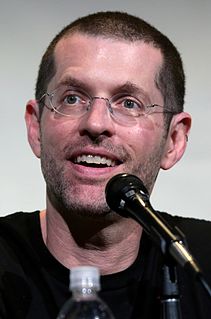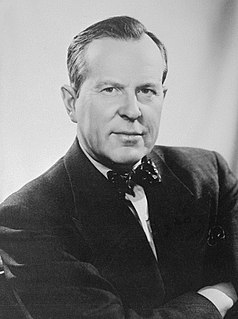A Quote by Thomas Merton
Therefore, doing the Stations of the Cross was still more laborious than consoling, and required a sacrifice. It was much the same with all my devotions. They did not come easily or spontaneously, and they very seldom brought with them any strong sensible satisfaction. Nevertheless the work of performing them ended in a profound and fortifying peace: a peace that was scarcely perceptible, but which deepened and which, as my passions subsided, became more and more real, more and more sure, and finally stayed with me permanently.
Quote Topics
Any
Became
Brought
Come
Consoling
Cross
Did
Doing
Easily
Ended
Finally
Laborious
Me
More
More And More
Much
Nevertheless
Passions
Peace
Performing
Permanently
Profound
Real
Required
Sacrifice
Same
Satisfaction
Scarcely
Seldom
Sensible
Spontaneously
Stations
Stayed
Still
Strong
Sure
Than
Them
Therefore
Very
Which
Work
Related Quotes
We know that the elements in play in a show like 'Confederate' are much more raw, much more real, and people come into them much more sensitive and more invested, than they do with a story about a place called 'Westeros,' which none of them had ever heard of before they read the books or watched the show.
When I first started out on the soap, I was more theatrical, like a stage actor, a little bigger than life. As I did more and more Love Of Life, I became more natural. I learned the value of underplaying. It was a great training ground for me. There was a big difference in my style of acting from where I started with that show and where I ended, and where I ended was a good jumping-off point for doing nighttime television and movies.
The sense that a man is serving a Higher than himself, with a service which will become ever more and more perfect freedom, evokes more profound, more humbling, more exalted emotions than any thing else in the world can do. The spirit of man is an instrument which cannot give out its deepest, finest tones, except under the immediate hand of the Divine Harmonist.
One of the problems with industrialism is that it's based on the premise of more and more. It has to keep expanding to keep going. More and more television sets. More and more cars. More and more steel, and more and more pollution. We don't question whether we need any more or what we'll do with them. We just have to keep on making more and more if we are to keep going. Sooner or later it's going to collapse. ... Look what we have done already with the principle of more and more when it comes to nuclear weapons.
A good peace, a solid peace, a peace in which communities can flourish, can only be built when we ask ourselves and each other to be more than just good, and better than just strong. And a good life, a meaningful life, a life in which we can enjoy the world and live with purpose, can only be built if we do more than live for ourselves.
As naturally as the ruled always took the morality imposed upon them more seriously than did the rulers themselves, the deceived masses are today captivated by the myth of success even more than the successful are. Immovably, they insist on the very ideology which enslaves them. The misplaced love of the common people for the wrong which is done to them is a greater force than the cunning of the authorities.
There is something in natural affection which will lead it on to eternal love more easily than natural appetite could be led on. But there's also something in it which makes it easier to stop at the natural level and mistake it for the heavenly. Brass is mistaken for gold more easily than clay is. And if it finally refuses conversion its corruption will be worse than the corruption of what ye call the lower passions. It is a stronger angel, and therefor, when it falls, a fiercer devil.
I say then, that belief is nothing but a more vivid, lively, forcible, firm, steady conception of an object, than what the imagination alone is ever able to attain. This variety of terms, which may seem so unphilosophical, is intended only to express that act of the mind, which renders realities, or what is taken for such, more present to us than fictions, causes them to weigh more in the thought, and gives them a superior influence on the passions and imagination.
Where is the peace in more is better? This idea keeps us exclusively in the physical domain. You can replace the more is better belief with an inner serenity that doesn't need more to be acceptable. There is no peace in more is better, and if it doesn't being peace to your life, then it's something you want to discard.



































